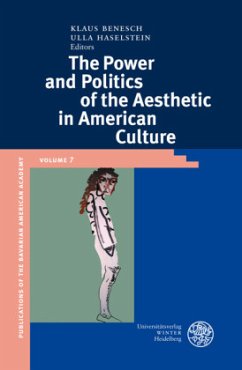While the ubiquity of the aesthetic in contemporary society can hardly be denied, the reasons for the staggering aestheticizing of private and social practices are manifold and have recently been subject to controversial debates within the humanities. Arguably, postmodern consumer culture, new hedonistic lifestyles, or the spectacularization of the political sphere are just another form of Americanization, yet the specific 'American' dimension of these phenomena often remains blurry. As the essays collected here show, to simply conflate the aestheticization of everyday life with an American consumerist ideology predicated on packaging and surfaces largely disregards the complex and tangled history of the aesthetic in Western cultures. In this volume, seven eminent literary and cultural historians from both Europe and the United States discuss the power and politics of the aesthetic in American culture (and elsewhere) with respect to multicultural diversity, fashion, the visual arts, aesthetic theory, the politics of race and sexuality, and, finally, America's response to the 9/11 attacks on New York.
Bitte wählen Sie Ihr Anliegen aus.
Rechnungen
Retourenschein anfordern
Bestellstatus
Storno







